
Eggs might be a breakfast staple, but they’re far from the only protein powerhouse out there. Plenty of foods pack even more protein, plus extra nutrients that can fuel your body in ways eggs can’t. So, keep reading to discover 20 high-protein alternatives that bring variety, flavor, and serious nutrition to the table.
Chicken Breast

This protein-packed alternative is a staple for fitness enthusiasts, as it provides 23 to 31 grams of protein per 100 grams when cooked, depending on the cooking method and moisture loss. It supports muscle growth and enhances recovery, making it a great option for post-workout meals.
Greek Yogurt

This thick and creamy dairy option packs around 10 grams of protein per 100 grams. It also contains probiotics to help with digestion, while the slow-digesting casein protein keeps you feeling fuller for longer. Plus, it’s rich in calcium, which supports strong bones and steady muscles.
Lentils
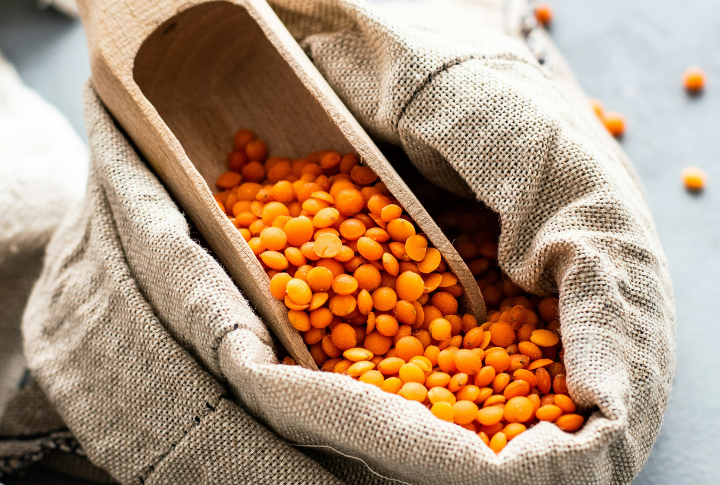
Packed with essential nutrients, a 100-gram serving delivers 9 grams of protein, along with a healthy dose of fiber to help curb hunger. It’s also rich in iron, supporting oxygen transport and boosting energy levels. Loaded with antioxidants, it helps fight inflammation and promote heart health.
Tuna

With its impressive protein content of 29.91 grams per 100 grams when cooked, tuna is a top choice for nutrition. Even canned tuna maintains a high protein range of 23 to 29 grams, along with heart-friendly omega-3 fatty acids. Its high selenium content also supports immune function and thyroid health.
Cottage Cheese

A 100-gram portion of cottage cheese delivers about 11 grams of protein, predominantly from casein, which promotes sustained muscle recovery. Additionally, its high B-vitamin content contributes to efficient energy metabolism and overall physiological well-being.
Almonds
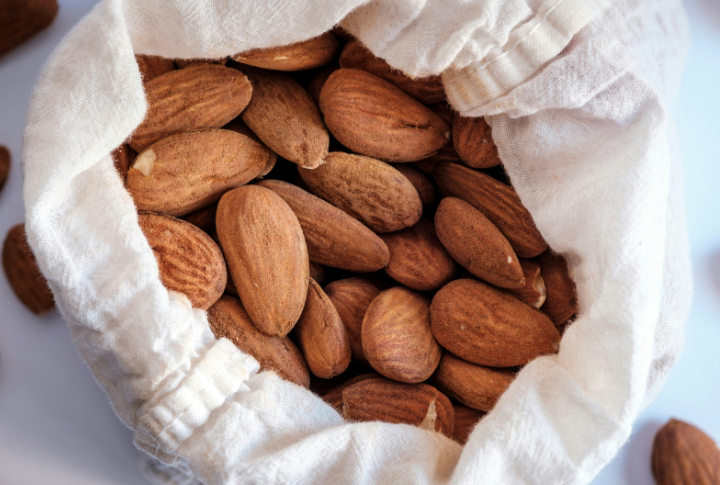
These crunchy nuts provide about 21 grams of protein per 100 grams, along with healthy fats and essential nutrients like vitamin E. Thanks to their magnesium, they keep your muscles strong and help with recovery. Plus, their antioxidants fight off oxidative stress to keep your cells healthy.
Quinoa
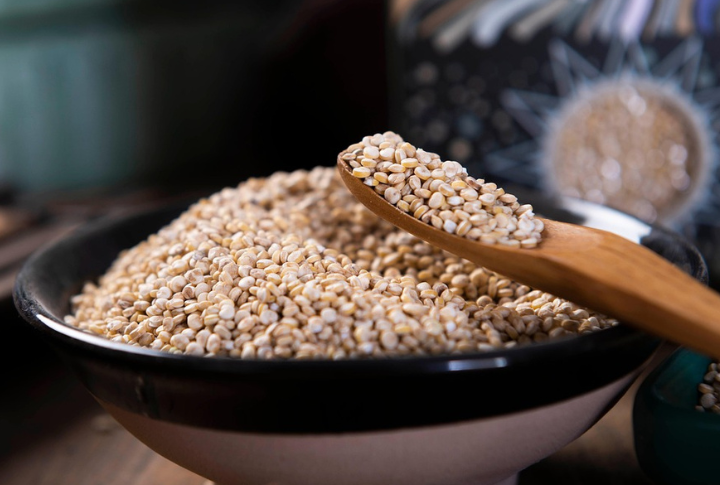
Quinoa is light, fluffy, and packed with nutrients. It offers 4.4 grams of complete plant protein per 100 grams cooked, along with essential amino acids to support muscle repair. As a bonus, it provides fiber, making it a great rice alternative. The added iron and magnesium help keep your energy levels steady and support nerve function.
Salmon
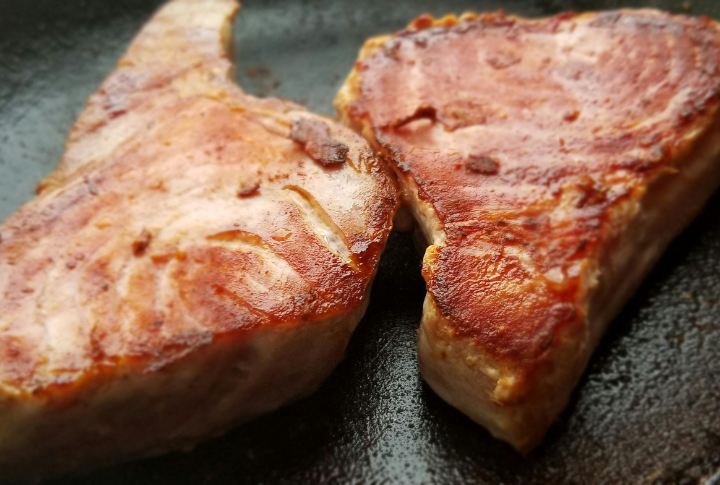
Packed with 25 grams of protein per 100 grams, this fatty fish is a powerhouse for heart health, thanks to its omega-3s. It also boosts bone strength and immunity with vitamin D, while selenium helps reduce inflammation and supports thyroid function. On top of that, the B vitamins contribute to better energy metabolism.
Pumpkin Seeds
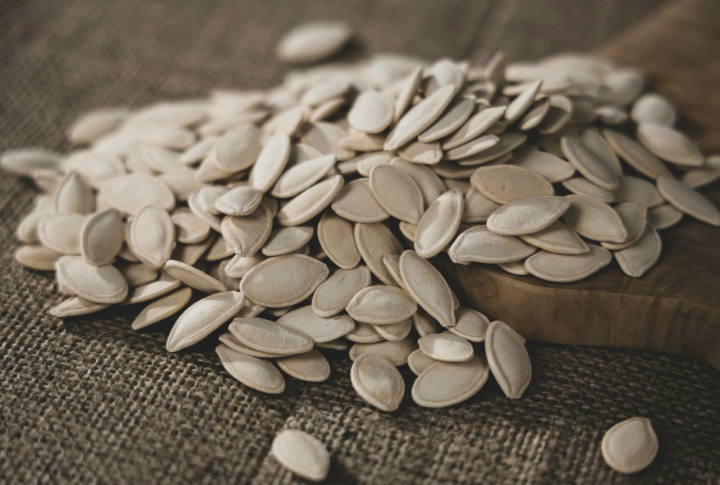
Pumpkin seeds pack 29.84 grams of protein per 100 grams, and they also have key nutrients like magnesium and zinc. Supporting immunity and skin regeneration, zinc is a key nutrient for preserving overall health. Meanwhile, antioxidants work to reduce inflammation and protect cells from oxidative stress.
Chickpeas
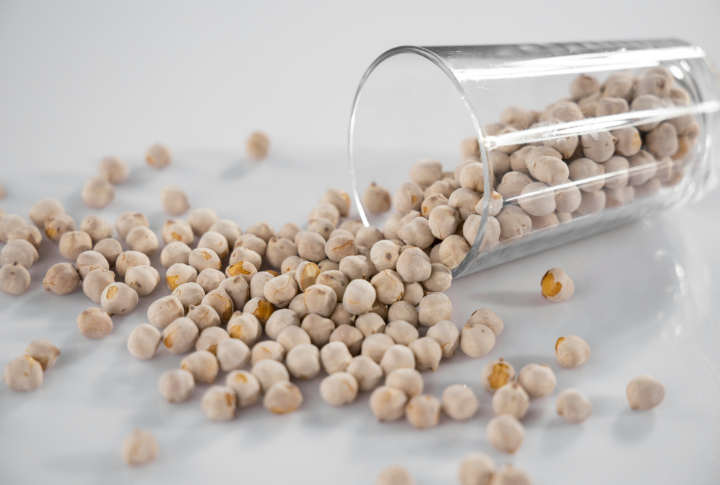
A plant-based protein powerhouse, chickpeas supply 9 grams per 100 grams, adding both nourishment and texture to any dish. Loaded with folate for cognitive and cellular support, they also boast a low glycemic index, which makes them a smart choice for sustained energy and overall well-being.
Edamame

These vibrant green soybeans aren’t just a tasty snack but also pack 11 grams of protein per 100 grams. The isoflavones support hormonal balance, while folate and fiber nourish the brain and digestive system. Edamame is a small but mighty superfood with vitamin K to strengthen bones.
Shrimp

Shrimp is a protein-packed, low-calorie food that offers 24 grams of protein per 100 grams. It’s a great source of iodine, which is key for thyroid health. The astaxanthin in shrimp has antioxidant and anti-inflammatory benefits. Plus, the selenium supports immune function and helps regulate the endocrine system.
Beef

Craving a protein boost? Lean beef delivers a whopping 26 grams of protein per 100 grams, and your body absorbs it effortlessly. Packed with heme iron to keep your energy high and creatine to help you crush your workouts, it’s the perfect fuel for your muscles.
Chia Seeds
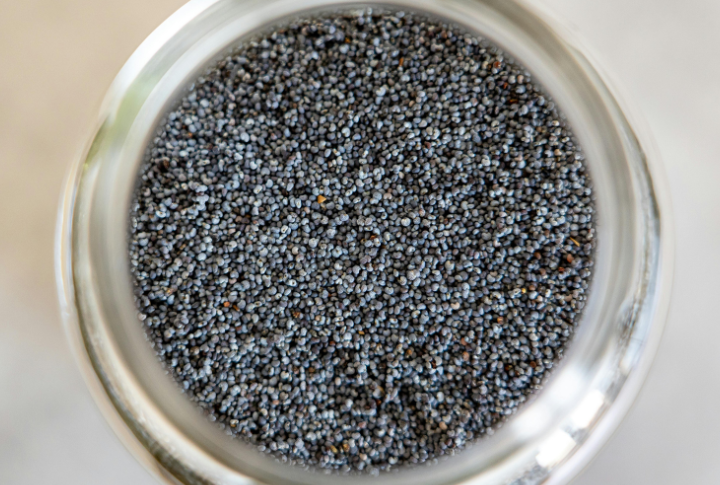
Ancient warriors relied on chia seeds for energy, and they still pack the same punch today. With 17 grams of protein, fiber, omega-3s, and essential minerals, they fuel the body, support digestion, and keep bones strong—helping you stay at your peak.
Black Beans

A great source of plant protein, black beans supply 9 grams per 100 grams, along with gut-friendly fiber. Their nutrient profile aids digestion, fosters a healthy microbiome, and helps protect the body from oxidative stress through natural antioxidant compounds.
Seitan

Seitan, also known as “wheat meat,” supplies 25 grams of protein per 100 grams, supporting a high-protein vegetarian diet. Its meat-like texture also makes it a versatile substitute in various dishes. This is the perfect fit if you’re aiming for a high-protein, low-calorie diet.
Peanuts
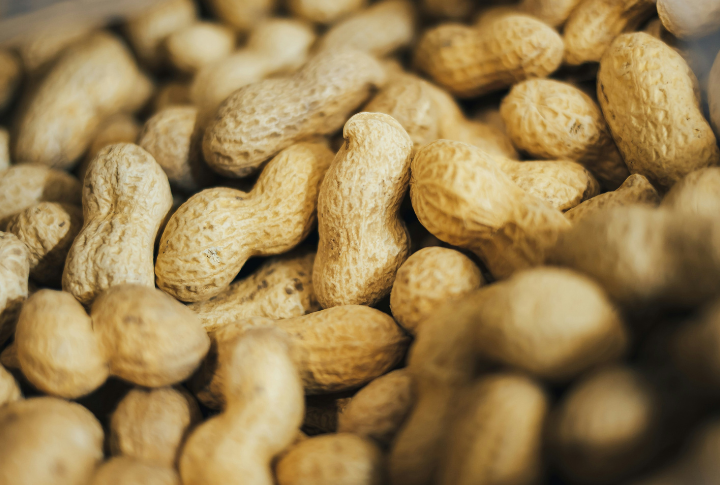
With 26 grams of protein in every 100 grams, peanuts give you more than just crunch. Arginine boosts circulation and heart health, while resveratrol delivers antioxidants similar to those in red wine. Tasty, nutrient-dense, and budget-friendly, they’re an easy way to fuel your body and mind.
Hemp Seeds
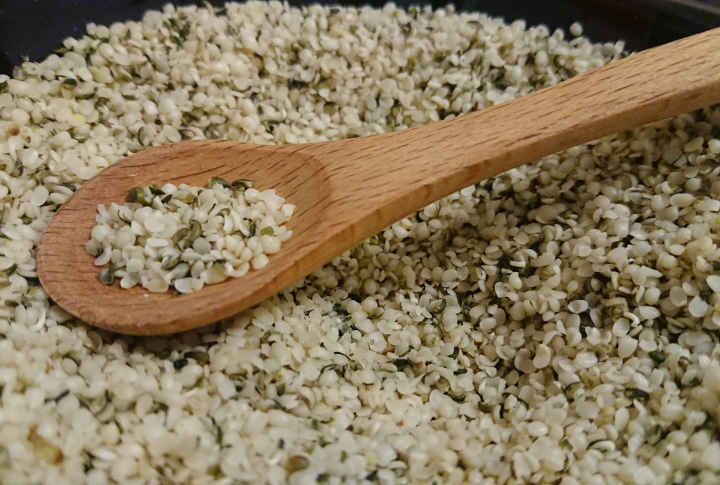
For a high-protein addition to your diet, hemp seeds supply 31 grams per 100 grams, ideal for blending into smoothies or sprinkling on salads and yogurt. Plus, they offer an ideal balance of omega-3 and omega-6 fatty acids, which promotes heart health. Even their high magnesium content aids muscle relaxation and optimal nerve function.
Sardines
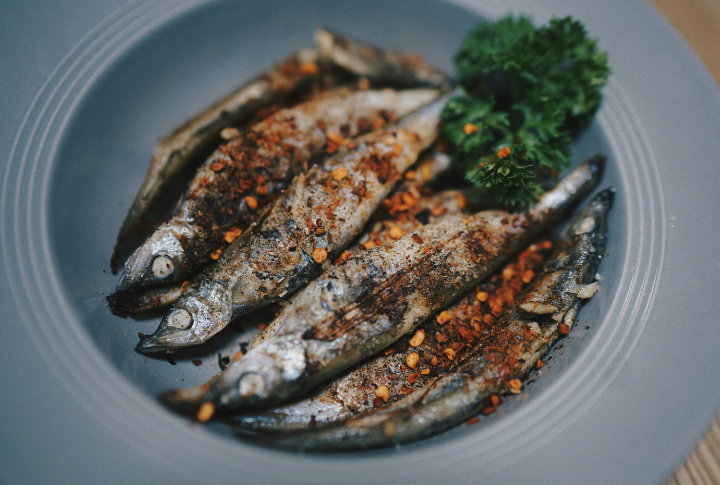
Don’t underestimate these little fish—they bring 25 grams of protein per 100 grams, plus a wealth of key nutrients. Calcium promotes bone strength, omega-3s enhance brain function, and vitamin B12 keeps energy levels high while supporting inflammation control, making them a powerhouse addition to any meal.
Turkey

Containing approximately 29 grams of protein per 100 grams, ground turkey serves as a nutritious alternative to eggs. This nutrient-dense option delivers essential B vitamins for mental clarity and metabolism, while its minimal saturated fat benefits heart health.
Leave a comment